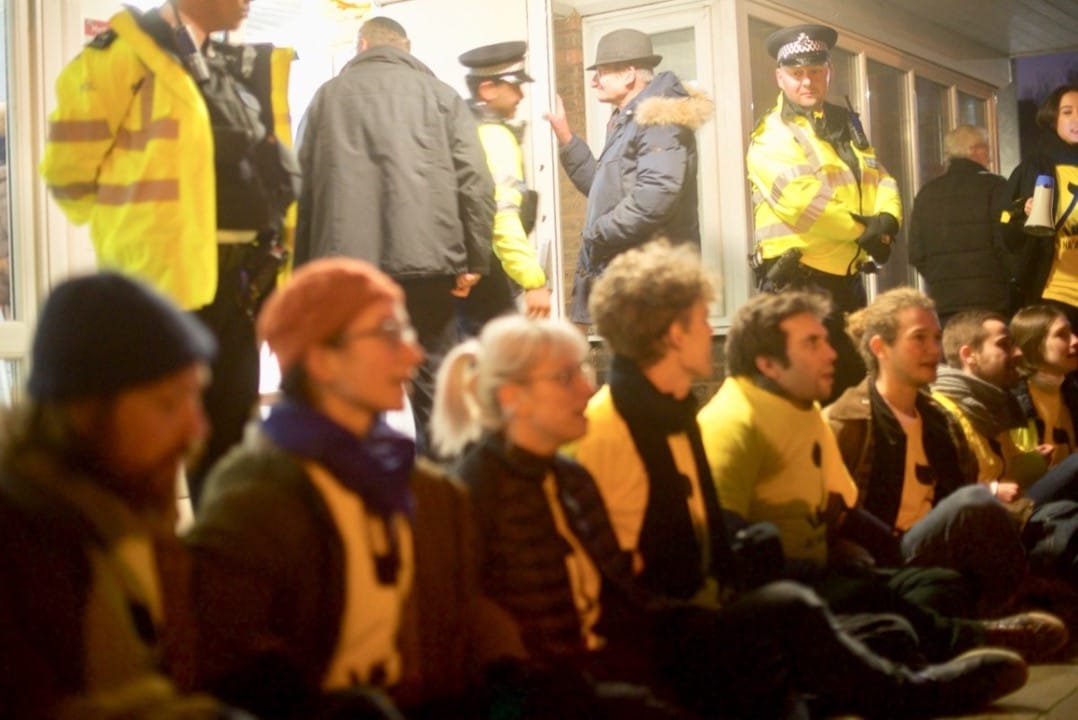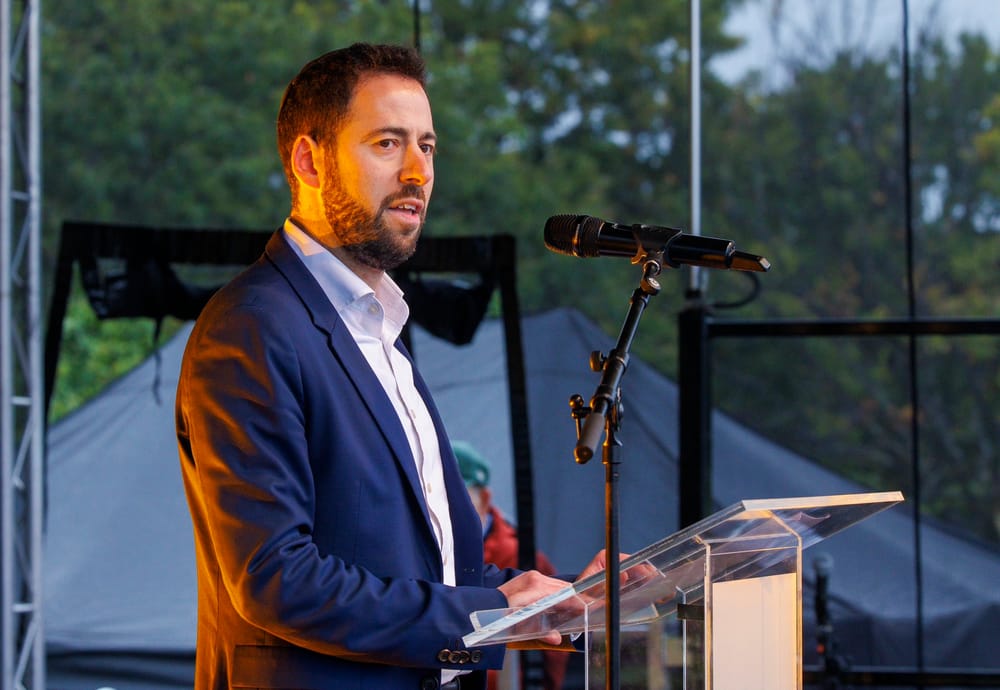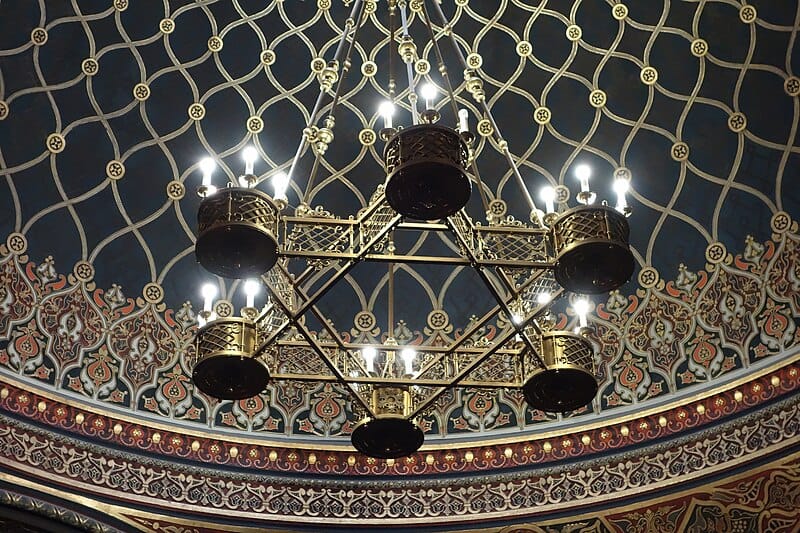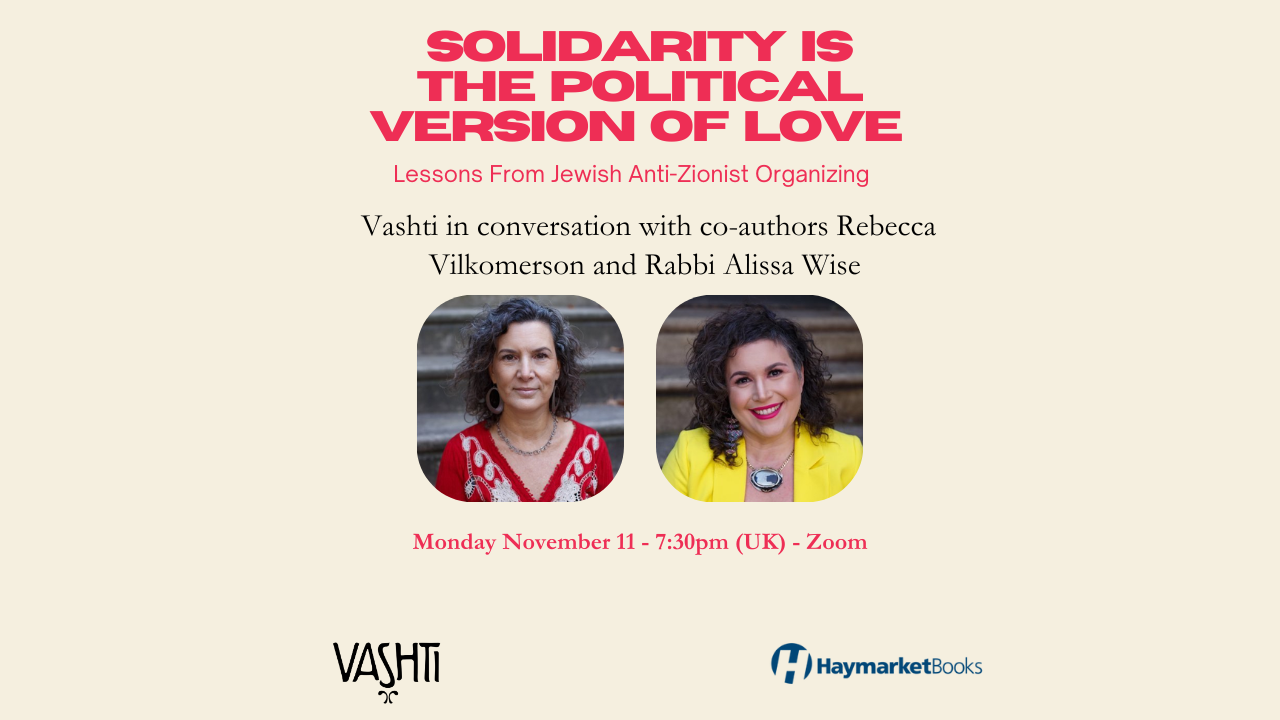Young Jews are reviving the Jewish left - will they succeed?
The seeds are being sown for a new Jewish left with a renewed desire for a better world.

As someone closer to his fiftieth birthday than his fortieth, I am wary of speaking about “the youth”. Too often, the young are selectively co-opted into the arguments of the old in order to offer proof either of of generational degeneration, a retreat from the struggles and victories that the older generation took part in, or generational vindication, that you were right all along.
Still, I cannot shake the sense of a gap growing between the older and younger generations of British Jews.
Since the election was announced, British Jews appear to have settled into three distinct blocs. One is made up of those who would never have voted Labour. A second is of those, including many in the Jewish Labour Movement, who have historically voted Labour, but who at this election cannot conscience doing so, or doing so enthusiastically. A third, smaller, group actively supports Corbyn, feeling that antisemitism in Labour is not a major phenomenon.
Yet these blocs obscure a kaleidoscope of opinion. Groups like Socialists Against Antisemitism are struggling to reconcile robust opposition to antisemitism with unabashed socialism. There are certainly plenty of people like myself who warm to the Labour manifesto, but feel that the party’s antisemitism problem is painfully far from trivial.
Along this spectrum sits a constellation of young Jews—including campaigns such as Jews Against Boris, groups like Jewdas and Na’amod and, indeed, platforms like Vashti—that are carving out a distinct space. These young Jews have no love for the worst antisemitism offenders, such as Chris Williamson and Ken Livingstone. Yet the urgency they feel for the need for radical social change means they cannot pass up what may be a once-in-a-generation opportunity.
While critics may smear these young Jewish activists as little more than useful idiots at best and traitors at worst, the generational divide within the Jewish Labour left is under-appreciated. Jewish Voice for Labour is dominated by secular anti-Zionist socialists who have spent decades on the fringes of both the Labour Party and the Jewish community. In contrast, one of the most striking features of the young British Jewish left is that it retains strong links to mainstream Jewry (although, as I later argue, these links may be under threat), having retained elements of Jewish practice and liturgy (look at Kaddish for Gaza, or Jews Against Boris’s solidarity Shabbat dinner). They also tend to avoid the blanket denials of antisemitism common to the Jewish Voice for Labour (JVL)-affiliated left. The seeds are being sown for a Jewish left whose desire for a better world might be enacted in a way that has a chance of breaking free from the tendency towards obdurate self-ghettoisation that has dominated the far left. This young Jewish left reflect the inclusive, free-floating idealism of movements like Occupy, rather than the factional institutionalism that has historically dominated the hard left.
This generational divide is reflected in Corbynite Labour, the contrast between whose young, diverse, and idealistic grassroots and the tight-knit inner circle of older, inflexible white men could not be starker. Yet oddly enough, these young leftist Jews have allied themselves with the very kinds of figures they appear to be rebelling against. This alliance, counterintuitive as it may seem, is a product of the socioeconomic context that gives young people’s desire for change a greater urgency. An economic crash followed by endless austerity, skyrocketing house prices and tuition fees, the rise of the “gig economy” and an impending climate catastrophe: all been perpetrated, or at least indulged, by New Labour, coalition and Tory governments. It should not be hard to empathise with the young leftist electorate, including its Jewish members, who have no nostalgia for New Labour and do not trust the Liberal Democrats. Young Labour activists, Jewish or otherwise, may be motivated by a pragmatic desire to protect their futures as much as selfless solidarity.
It would, however, be a mistake to suggest that all young Jews experience modern precarity in the same way—nor do I wish to imply that the only young people who count are those who have understood our modern historical conjuncture “correctly”. So, how far does the new generation of young Jewish activists represent the future of the Jewish community?
Frustratingly, we have little hard data with which to answer this question. A 2013 survey in fact suggested that younger Jewish people were becoming more religious, although this was largely due to the rapid demographic growth of the strictly orthodox sector. Two surveys, one is 2010 and one in 2015 suggested that age was not a major factor in explaining the degree of Jewish hawkish/dovish attitudes to Israel, although older people were more likely to be reluctant to criticise Israel publicly. In terms of propensity to vote Labour, some recent surveys showed that younger Jews are slightly less likely to see Labour as antisemitic, but the differences are fairly minor.
***
Discussions of Jewish generational differences often centre on Israel. There is certainly heavy crossover between young Jewish Labour activists and Israel-critical groups such as Na’amod or Jewdas. The controversy over Kaddish for Gaza last year was often framed in generational terms: by its critics as the failure of an older generation to properly educate a younger one by passing on their love for Israel. When Na’amod attacks communal complacency over the occupation, it is an attack on the generations that let it last so long without comment. When Na’amod disrupted a conference run by StandWithUs, an “education organization that ensures that Israel’s side of the story is told”, they were questioning whether such education reflected the values of young Jews.
On balance though, there is no hard evidence to suggest that young Jewish Israel-critical activism is representative of anything close to a majority of their generation. Post-16 and post-18 year courses remain central pillars of Jewish communal education and, despite spirited attempts by non-Zionist Jewish students, UJS has never elected a president who is not a Zionist.
Yet representativeness aside, small movements like Na’amod can have influence disproportionate to their size. One of the most significant aspects of the Kaddish for Gaza action was that a number of its participants were embedded within “mainstream” Jewish organisations, and so could not be dismissed as marginal miscreants. Similarly, Jews Against Boris and Na’amod include activists who are also deeply engaged in Jewish life. It is possible, therefore, that while the young Jewish left may not represent their generation’s politics, it may well disproportionately influence them.
Not only this, young Jewish leftists’ insistence on being part of religious life makes its anti-establishment character very different to that of the secular anti-Zionist Jewish left that was so marginalised post-1967. It may well be a kind of internal critique, by possible future Jewish communal leaders, of the current generation of Jewish leaders.
Or at least it might be that for now. The young Jewish left that is emerging is a fragile, far-from-coherent movement and small in number. It risks being isolated and marginalised from multiple directions.
Regardless of the outcome of the December election, it is unlikely that the most vociferous Jewish opponents of Labour will forget, or forgive, those who have publicly campaigned for the party. The desire for excommunication that was so evident at Kaddish for Gaza may broaden and deepen. The opprobrium faced in the post-war period by Jews who publicly refused to embrace Zionism may be visited upon a new generation. Whether they want to or not, the young Jewish left risks becoming yet another generation of irrelevant and embittered activists.
Then there is the risk of marginalisation from the left itself. As I argued earlier, with the coalition of the left in the Labour Party, there is a latent inter-generational tension. It’s hard to cast authoritarians such as Len McClusky or Seamus Milne in the role of democratic grassroots activists. And the hopes that the young left place in Jeremy Corbyn (and similarly, in Bernie Sanders in the US), are ripe for disillusionment. I worry that all that idealism, that desperate desire for a viable future, is being delegated to an opaque, conspiratorial and authoritarian clique who will drain the grassroots of all its vitality in the service of an inflexible idea of what radical change is.
So the risks of young Jewish left activism are multiple. But so are the risks of not acting. This is ultimately what may differentiate this generation from previous ones, or at least from the post-war generation. Those of us who grew up in the shadow of the generation that fought the Nazis may have sometimes been guilty of inflating the stakes of left-wing politics, of yearning for a cataclysmic struggle. Now though, there are real cataclysms on the horizon that cannot be avoided.
I welcome a degree of inter-generational anger, in the Jewish community and elsewhere. The smug piety and indolence with which much of the Jewish establishment has responded to issues that define our politics invites recrimination. What I hope, however, is that Israel and Labour antisemitism don’t derail this reckoning before it begins. If I have any advice for the young Jewish left, it is to compromise on some of its radicalism on Israel in order to preserve a radical vision. That way, it might be possible to mobilise a coalition of Jewish youth to seek justice from the generations that stole their futures. ▼
Keith Kahn Harris is a senior lecturer at Leo Baeck College and an associate fellow of the Institute for Jewish Policy Research where he runs the European Jewish Research Archive. He has written numerous books including, most recently, ‘Strange Hate: Antisemitism, Racism and the Limits of Diversity’.’
Author

Keith Kahn Harris is a senior lecturer at Leo Baeck College and an associate fellow at the Institute for Jewish Policy Research.
Sign up for The Pickle and New, From Vashti.
Stay up to date with Vashti.



